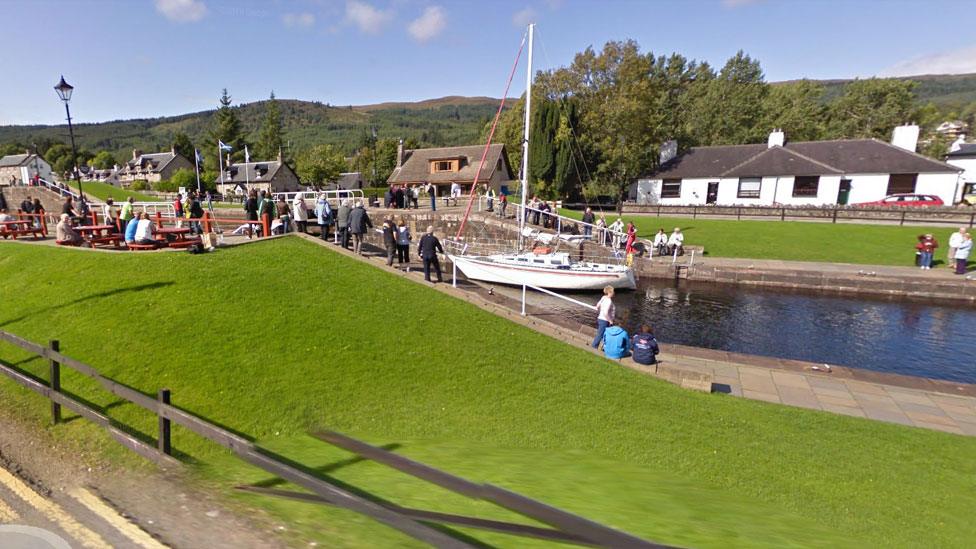Historic Caledonian Canal 'dewatered' for lock work
- Published
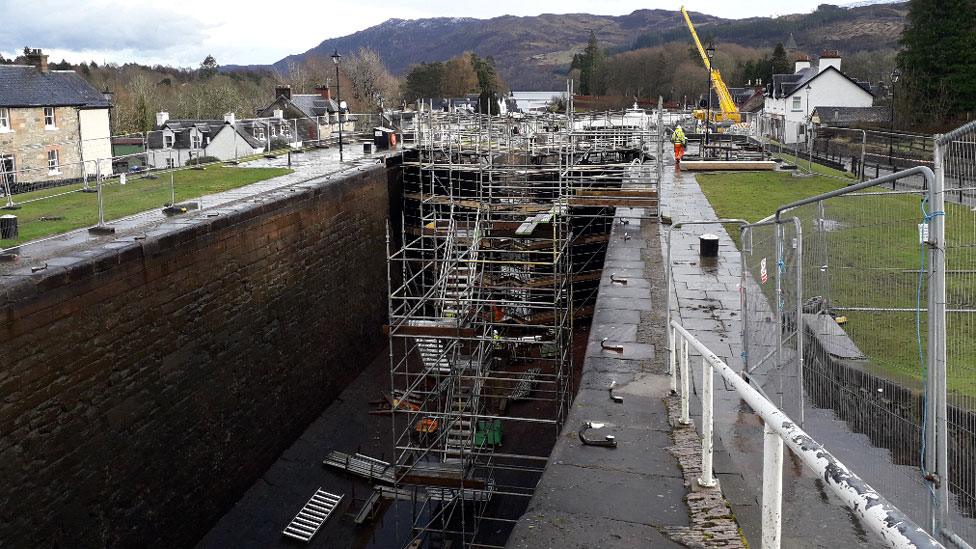
Locks at Fort Augustus are being replaced
A stretch of the Caledonian Canal has been emptied of water to allow for lock gates to be replaced on the historic waterway.
Scottish Canals has drained a 7,293m (23,927ft) long section in a process called dewatering.
Most of the water to an average depth of 5m (16ft) has been pumped out.
Lock gates at Fort Augustus and also about two miles (3km) south at Kytra are being replaced. The work started last month and is due to end in March.
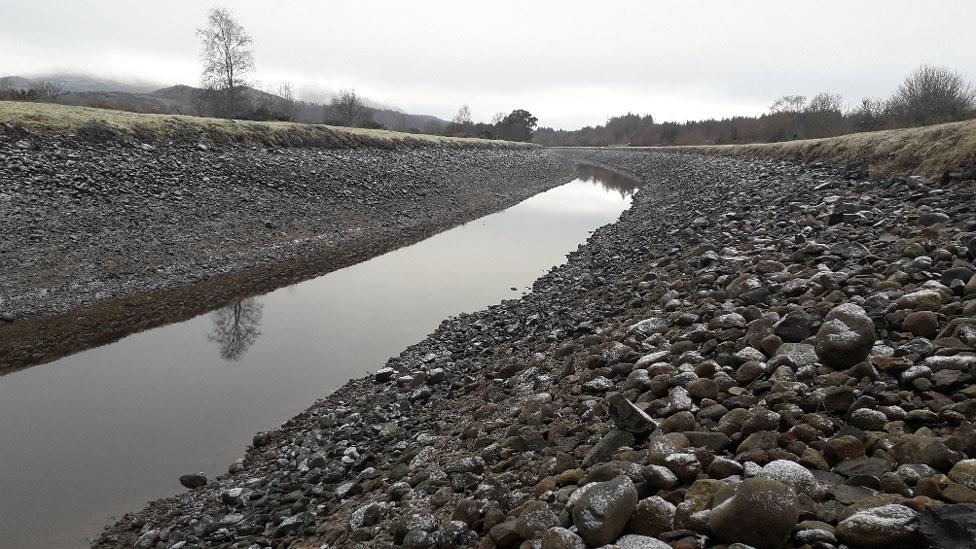
The dewatered stretch of canal
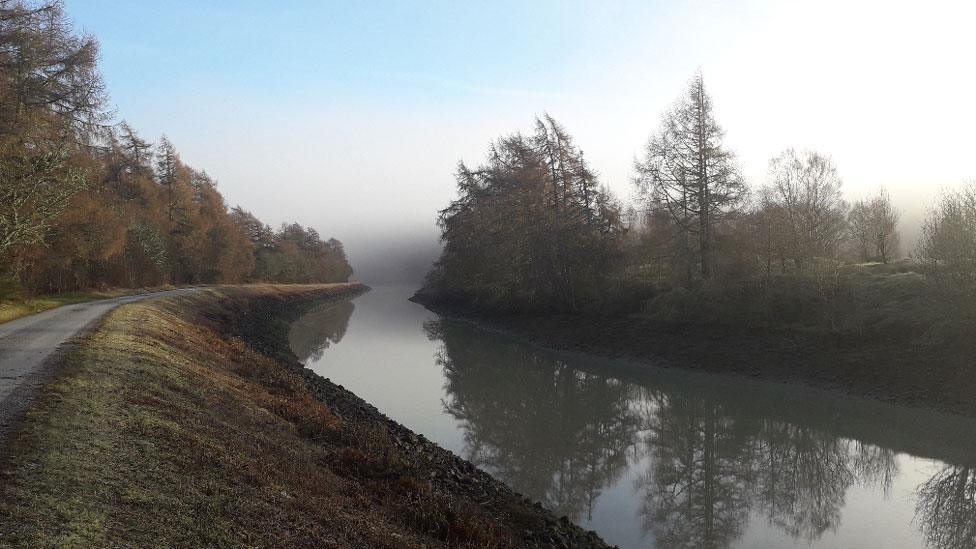
Lowered water levels on the Caledonian Canal
The dewatering involved closing some lock gates and locking them closed.
Water flow was stopped by using barriers called stop planks and small dams of rock, before pumping out water.
The overall section of canal involved has been closed to traffic.
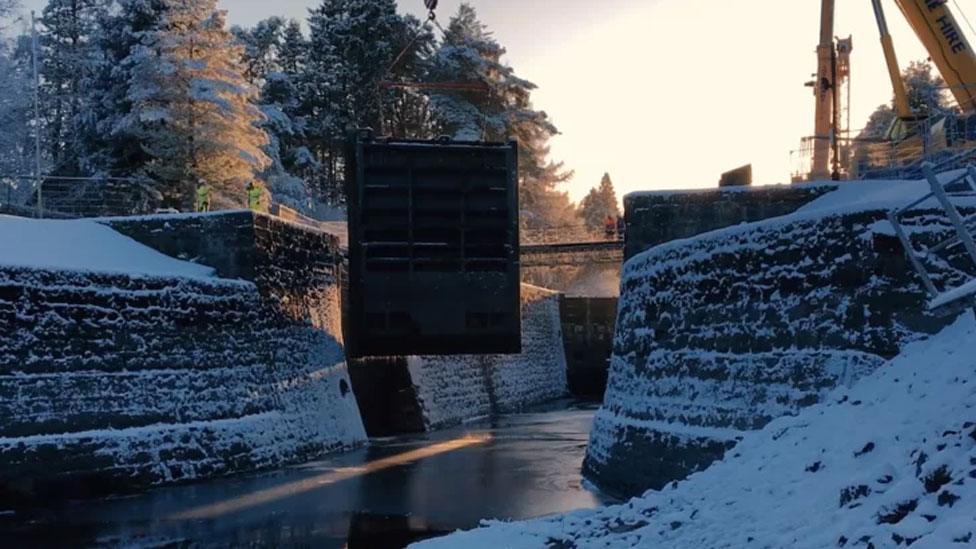
A lock gate being removed at Kytra
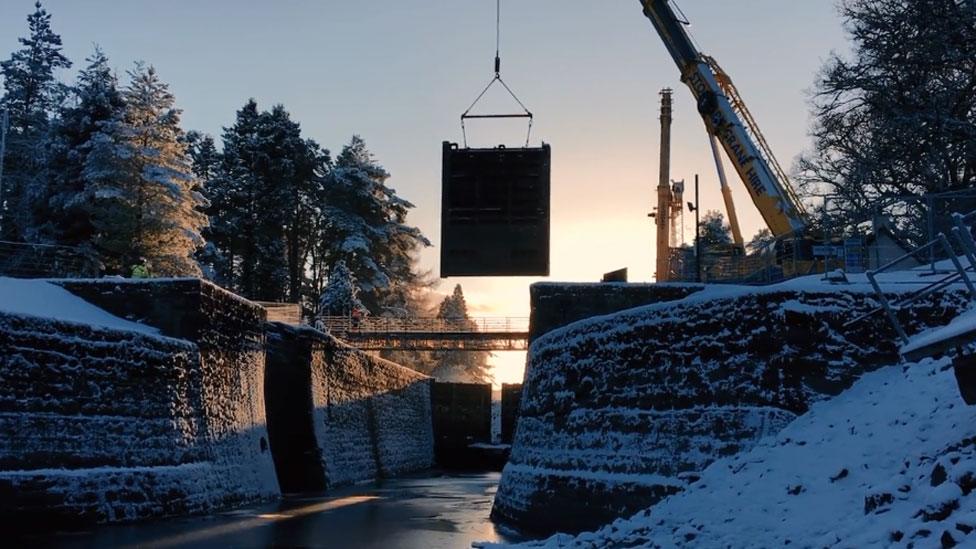
The locks at Kytra form part of the wider revamp
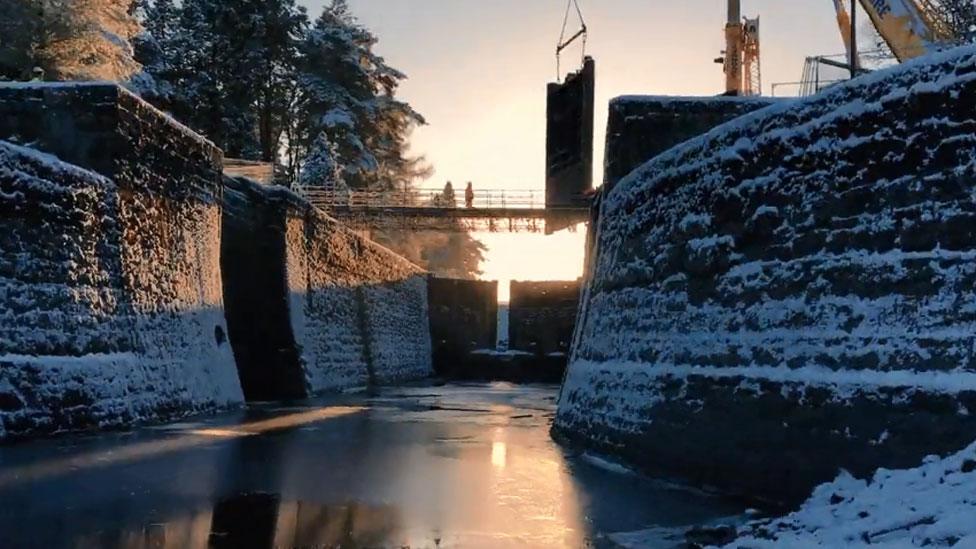
The Caledonian Canal took 12 years to construct.
Opened in 1822, with repairs and improvements made in the 1840s, it was built to designs made by famous Scottish engineer Thomas Telford.
The waterway's 60 miles (96.5km) length includes lochs Ness, Oich and Lochy and 22 miles (35km) of canal with 29 locks.
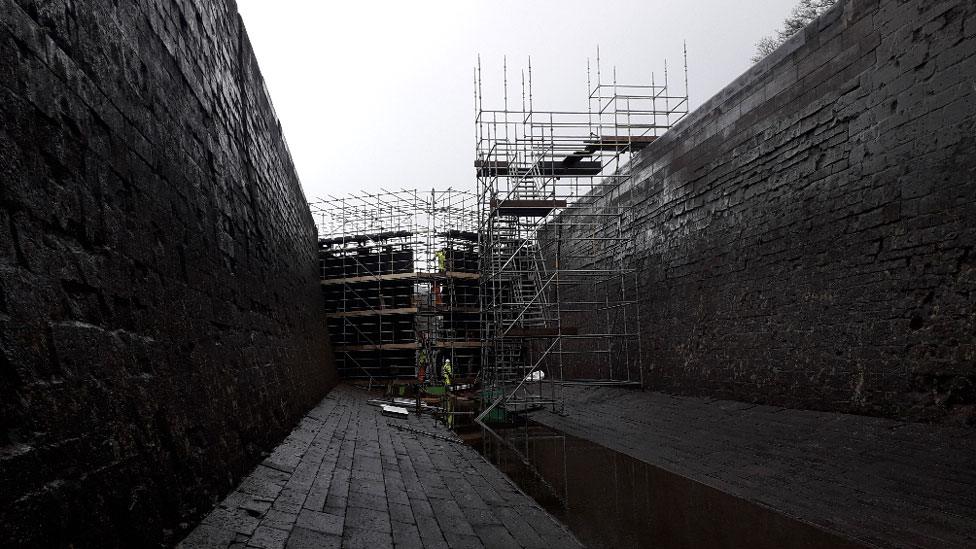
The dewatered canal at Fort Augustus
- Published14 January 2019
